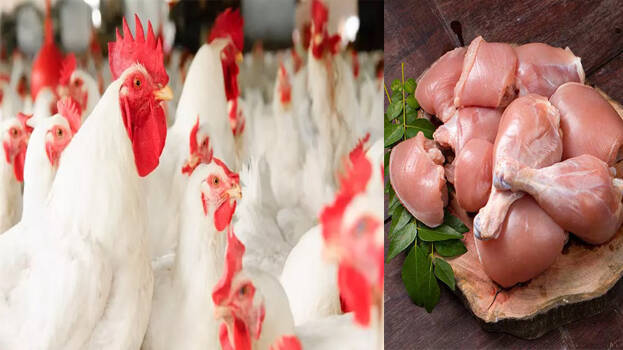

THIRUVANANTHAPURAM: Chicken has made it into the list of a common cuisine favoured by Malayalees. It has turned into a new normal for most families in Kerala to bring chicken to their dinner table at least once a week. If fish prices see a hike, Malayalees show no qualms as they would happily prefer their alternative in chicken. It is normal for the poultry trade in Kerala to go up during the Christmas season. Amidst this comes an alarming news.
The presence of Antimicrobial resistant bacteria has been detected in broiler chickens sold in Kerala. The alarming situation was discovered in a study conducted by ICMR. Besides Kerala, the gene profile was also confirmed in samples collected from another south Indian state, Telangana. The test revealed the presence of bacteria resistant to antibiotics. The use of antibiotics has increased exponentially with the spread of poultry farming on an industrial basis and this is highly dangerous.
The situation is alarmingly grave for the fact that these chickens brought from other states reach people without any sufficient check from authorities. The study was published in an international journal by ICMR - Drugs Safety Division, National Institute of Nutrition (Hyderabad). Chicken excrement was collected from different areas and DNA was isolated and subjected to study.
ICMR has prepared a list of dangerous bacteria that have survived drugs. Among these, Staphylococcus pneumoniae, which causes pneumonia, E-coli, which causes diarrheal diseases, and Staphylococcus, which causes skin diseases, were found in broiler chickens from Kerala. In addition to respiratory diseases, these include bacteria that cause urinary tract infections and stomach infections. Even a thorough cooking by an expert would do little to take away these bacteria from the chicken.
Samples were collected for the study by dividing Kerala into three zones. Malappuram and Kannur districts are in the northern zone, Ernakulam and Kottayam are in the central zone and Thiruvananthapuram, Kollam and Alappuzha districts are in the southern zone. The presence of such bacteria is more in the southern region as compared to other regions.